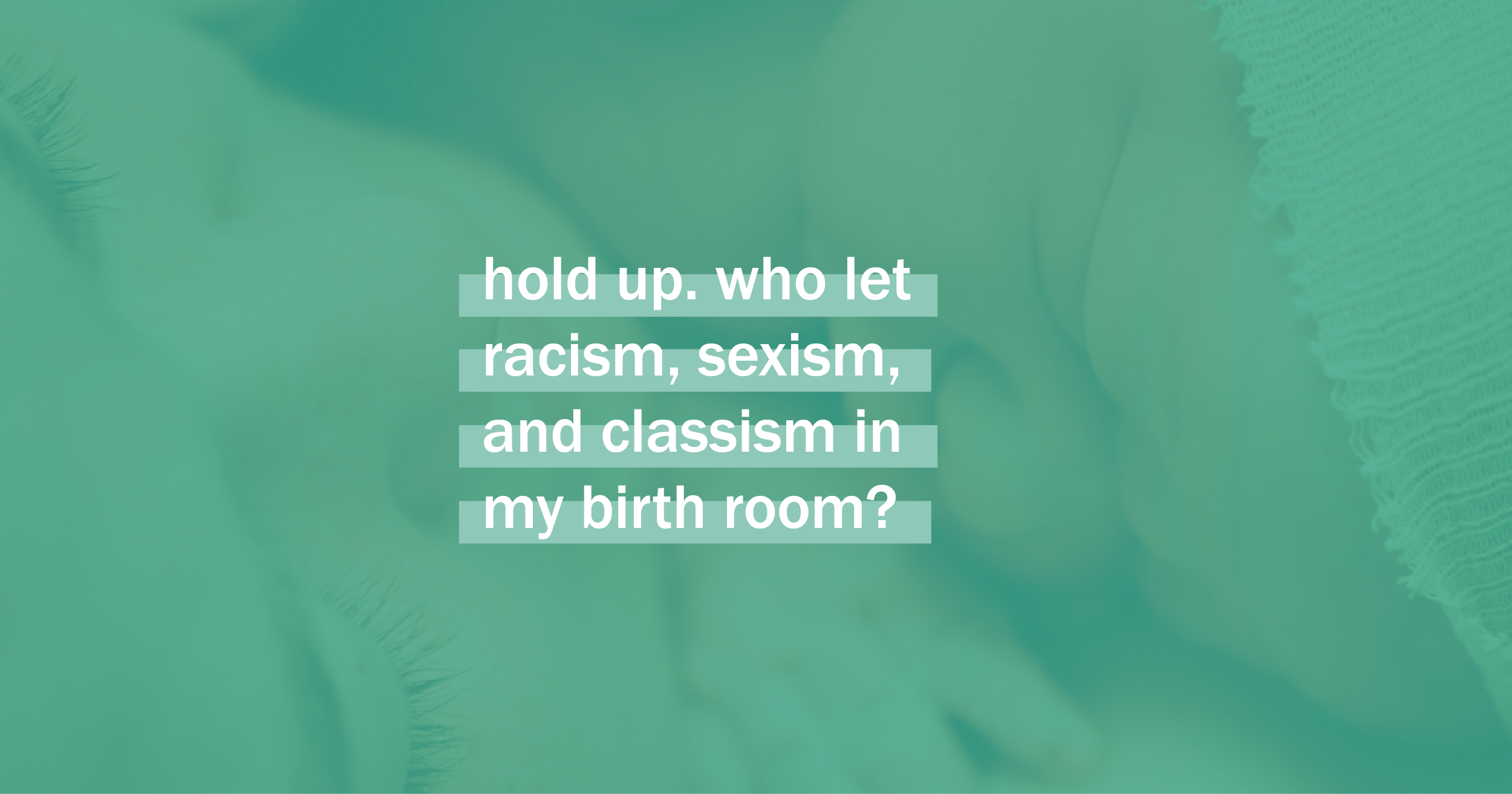5 Resources and Stories on Maternal Health for Black Women
Our experiences of pregnancy and birth in the United States — from quality of care to health outcomes — are deeply impacted by race and class. What does that actually mean? Below are a list of resources and stories to shed light on this issue. Whether you're a black mom, a doula or birth educator, or simply an interested human being, this list is here to equip you to know more.
What It’s Like to Be Black and Pregnant When You Know How Dangerous That Can Be
Author Dani McClain writes of her experience being pregnant and Black in the midst of the traumas that bore the Black Lives Matter movement, and then adds to her lived experience the research that supports it.
"An Institute of Medicine report found that people of color 'are less likely to receive needed services' even when their insurance and income are the same as white people’s. So I tried to leverage every bit of privilege I could to stave off any assumptions that my health-care providers might have made. I wasn’t married and rarely wore my engagement ring, but I made sure to put it on before every prenatal appointment. When I showed up to an appointment with cornrows or an Afro, I wondered if I’d be treated differently from the times I’d come with my hair flat-ironed."
How racism harms pregnant women — and what can help
Racism is making people sick — especially black women and babies, says Miriam Zoila Pérez. The doula turned journalist explores the relationship between race, class and illness and tells us about a radically compassionate prenatal care program that can buffer pregnant women from the stress that people of color face every day.
Keisha Knight Pulliam Shares Distressing Story of Racist Hospital Service
After Cosby Show actress Keisha Knight Pulliam gave birth to her daughter this January, she had a troubling experience. Her lactation consultant questioned the quality of her insurance, offered her only information on WIC programs, and refrained from touching her during the little assistance she provided.
A sobering example of how color impacts quality of care, regardless of other societal factors like class, status, and achievement.
What’s Behind the Increased Numbers of Black Women Dying During Pregnancy and Childbirth in the United States?
The short answer: racism. The long answer: within the article linked above.
"There is not one single path to fixing this serious, ongoing problem. But what surely is paramount is ensuring space for and listening to the stories of black women—those at the center of this crisis."
Chocolate Milk: The Documentary
Chocolate Milk is a documentary about black motherhood, breastfeeding and the multi-billion dollar business of feeding black babies. It addresses the significant gap between breastfeeding rates for Black women compared to White and Latino women in the U.S, and explores how slavery, economics, and society have influenced the way Black Americans view intimacy, health and how to raise a child.
Do you have a personal experience with care during pregnancy and birth as a mother of color? Are there more sources of information on black maternal health you want to share? Tell me about it in the comments below.













